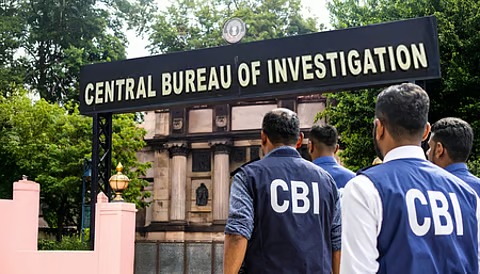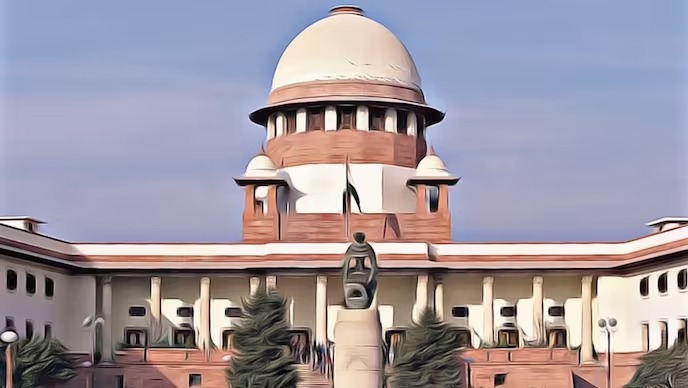Walsh and Wallach, JJ.@mdashThe question which arises in this case is whether a particular fund payable to a judgment-debtor under a compromise arrived at in a suit many years ago between himself and his brother, is protected from attachment by Clause (n) of Section 60 of the Code of Civil Procedure; or, in other words, whether it is a right to future maintenance. The decree-holder, who appears to be a money-lender, has a claim of some Rs. 26,000 odd, and in his original application sought to sell up the property shortly to be referred to. That he is clearly not entitled to do, with one exception, namely, the residence which will be mentioned in a moment. It is not easy to define in legal terminology the precise interest of the judgment-debtor, Raj Indar Naraian Singh, in the fund provided by this compromise. Perhaps the nearest definition would be that he is an annuitant subject to certain defined charges, with a reversionary interest in the corpus upon the death of his brother, Lal Bahadur Singh. It is provided by the compromise that he, the judgment debtor, shall possess and enjoy the immovable property mentioned in the list and estimated to yield a net profit of Rs. 8,000 a year, without power of transfer during the life-time of his brother, Lal Bahadur Singh, he undertaking to pay certain public exactions and other dues to his brother, Lal Bahadur Singh, amounting in all to Rs. 7,870-11-6, in four equal instalments per annum, each to be male a month before the Government revenue falls due. He is not to be deprived of the possession of the villages, but during his life-time he is to be entered on a sub-khewat to his brother without power of transfer. It is further provided that he shall be the absolute owner with power of transfer after his brother''s death. It is alleged in court to-day, and not denied, that the total income from the property just dealt with may be taken to be roughly Rs. 16,000, so that the charges upon it and the estimated profit to Raj Indar Narain Singh represent the total net profits of the property. This of course is immaterial, except so far as it assists one in understanding the arrangement. This arrangement is said to be "in lieu of his maintenance." This is merely a colloquial expression intended to convey an idea that this is the income on which he is supposed to live. The term "in lieu of" strictly interpreted is inappropriate in this place. It is a French expression meaning "in place of," and should be used only where one thing is substituted for another of the same kind, but there is no suggestion that the income of Rs. 8,000 a year is in substitution of some existing contractual right of maintenance which Raj Indar Narain Singh at that moment possessed against anybody.
2. The first thing to be said about property such as this is that it is clearly saleable. Once the villages are known, once the standing charges are ascertained and a rough estimate is formed of the net profits, it only requires a calculation of the value of the life of Lal Bahadur Singh to arrive at some sort of capital sum to represent the interest of Raj Indar Narain Singh during his brother''s life-time of those annual payments. We are unable to take the view that an arrangement of this kind is in any way contemplated by or covered by the expression "a right to future maintenance." Not much assistance can be derived from decided cases, and indeed it is dangerous to attempt to define or elaborate language which the Legislature has regarded as self-sufficient. It is sufficient to say that the expression "a right to maintenance" contemplates a bare right of maintenance and nothing more, a right enforceable by law and payable in the future. It is obvious from a contemplation of the terms of the compromise with which we have to deal, that the income of Rs. 8,000 contemplated and provided for something very much more than bare maintenance, although as an income it may well be regarded as a mere pittance for a gentleman in the position which this gentleman occupies.
3. Although in holding that the lower court is wrong, and remitting the application to be dealt with according to law by the lower court, we have really discharged our duty in the matter, the execution court may look for some guidance from this Court in dealing with a somewhat trouble some matter of this kind. We doubt whether it is desirable to attempt to put an interest of this kind up for sale in the ordinary way. The appropriate remedy is what is known as equitable execution, or indirect execution, namely, by the appointment of a receiver, who takes the place of the debtor and acts as an officer subject to the directions of the execution court in collecting and disbursing the debtor''s income, in accordance with the directions of the execution court, towards the discharge of the claim of the decree-holder. In such a case it is right and proper that the debtor himself should be protected by a real provision for maintenance, and we think the analogy of the Code which provides 50 per cent, as the maximum salary which should be allowed to be attached, is an analogy which might well be followed. Something will have to be done to provide for the expenses of the receiver. These of course are expenses in the execution and will ultimately fall on the judgment-debtor, but in the distribution of the money in the hands of the receiver they should be deducted from the amount payable to the decree-holder, so as not to diminish the maintenance allowance of the judgment-debtor. It is always to be borne in mind by a court exercising this somewhat difficult jurisdiction that a creditor has only himself to blame if he allows a heavy debt to accumulate without security and finds himself afterwards in difficulties. The portion of property to which we referred in the early part of this judgment and to which our observations do not apply, is the bungalow situate in mauza Bisram commonly known as Raja Bazar. Somewhat different principles apply to this and we think we are bound to construe this clause for the benefit of the lower court. There is certain to be another appeal if we do not, and we have come to the conclusion that the judgment-debtor has a life interest in that bungalow as a reversioner after the death of his wife.
4. We need hardly say that if Raj Indar Narain Singh is otherwise provided for sufficiently to keep him out of want in fair respectability, independently altogether of the income of Rs. 8,000, the court will not be called upon to make him any allowance out of that Rs. 8,000.
5. We should not be understood to ear-mark 50 per cent, as the allowance necessarily to be made out of the Rs. 8,000. It must depend upon the circumstances of the case, but if paragraph 2 of the deed is not a sham and was really a provision for maintenance, then we think 50 per cent, is reasonable. The appeal is allowed. The decree-holder will have his costs.

